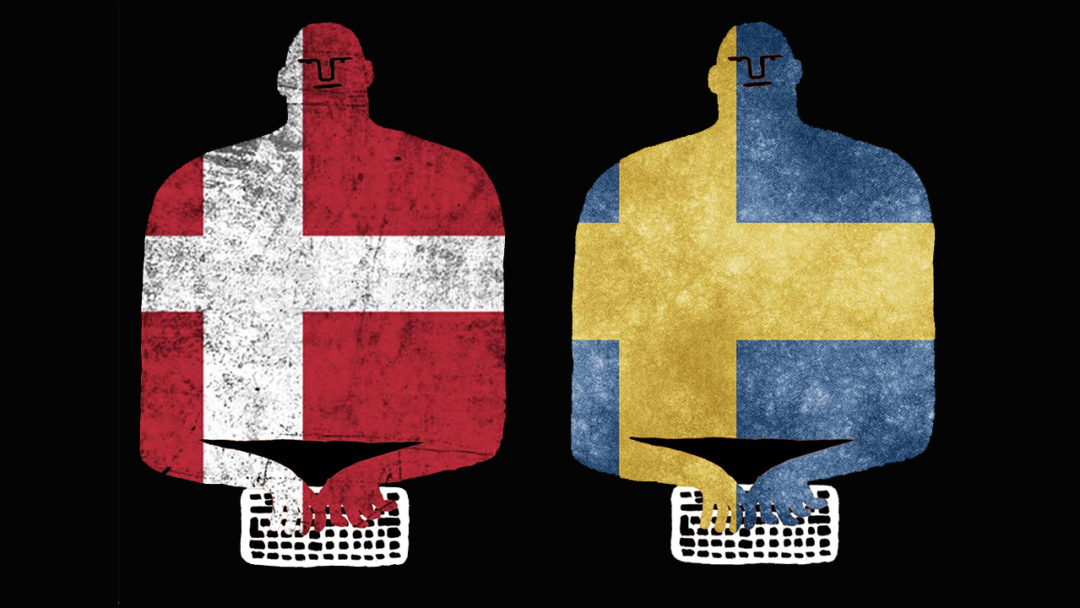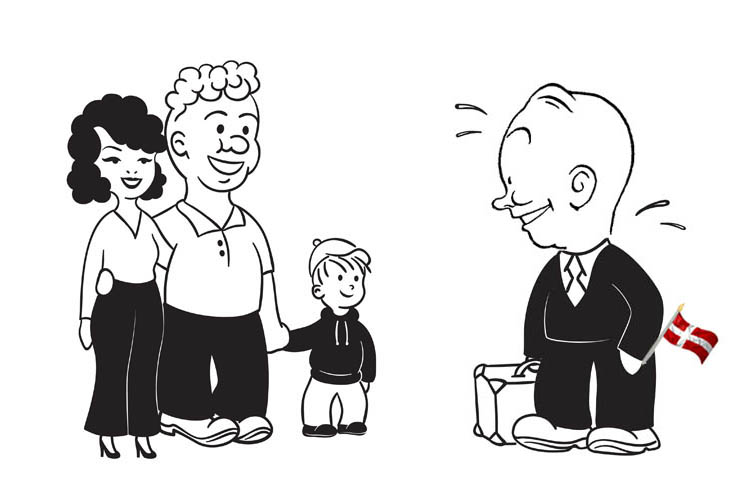While outsiders sometimes see the three Scandinavian cultures as “pretty much alike”, there are significant differences when it comes to working styles, in particular Danish working culture vs Swedish working culture.
Working with a Danish boss can be a shock for Swedes, with their extreme need for consensus and passion for sticking to whatever has been agreed on by the group.
The Danes’ more free-form, flexible approach can take Swedes by surprise, as can the Danes’ directness and sometimes lack of political correctness.
Here are a few tips for Swedes (or anyone else!) working with a Danish boss.
Tip #1: “The plan” is whatever works best today.
Swedes are famous for their careful planning process, spending all the time they need to collect consensus and make sure that everyone is on board with the plan. And once the plan is agreed upon, it is carefully followed by all.
Danes aren’t quite as keen on long planning processes: they’d rather put their oars in the water and start rowing, correcting course as needed.
If new information emerges or customers don’t respond as expected, “the plan” may be ditched without hesitation – and without discussion.
As an employee, it can be disconcerting to be working in one direction and then suddenly be pulled in another, but the Danes are proud of what they see as their practicality and flexibility.
This approach may also mean that the Danes on your team will follow a consensus agreement only to the extent that they think it is useful. If not, they may try to wiggle out of it, or “forget” to implement some of the measures you thought you’d agreed upon.
Tip #2: Relax your approach to hierarchy
Danes like to skip over layers of hierarchy and speak to whomever they think can give them the information they want, to the frustration of non-Danish cultures all over the world.
While Swedes don’t have the love of hierarchy seen in, for example, Japanese or Indian business culture, and certainly identify with the idea of flat organizations, they still believe that top managers should interact with top managers, and not take questions from random employees with something on their mind.
 Danes, by contrast, are so convinced of the correctness of their “flat hierarchy” that they assume everyone else probably feels the same way. Danish CEOs are accustomed to getting a flood of unsolicited advice from employees at any level of the organization, sometimes at the company Christmas party.
Danes, by contrast, are so convinced of the correctness of their “flat hierarchy” that they assume everyone else probably feels the same way. Danish CEOs are accustomed to getting a flood of unsolicited advice from employees at any level of the organization, sometimes at the company Christmas party.
Should you be working in Denmark and find that a colleague you perceive as “below” you in the pecking order has leapt over your head to speak directly with your manager, try not to take it as a personal insult. It certainly wasn’t meant that way.
Tip #3: Being fired is part of life in Denmark, and it may happen to you.
The Danish system of “flexicurity” is set up to quickly sweep away anyone who is no longer needed at a private company, while providing a social welfare net to make sure that no one goes hungry. It isn’t uncommon for a new boss who has just taken over a department to quickly replace the team with his or her own people.
And if for some reason you’re not performing to expectations, there will be no talk of a face-saving do-nothing job in an office far away. You’ll simply be fired: invited into a room with your union rep (if you have one) and be told that your employment will cease after the mandatory 3-month notice period.
Almost anyone can be fired at any time, as long as basic legal rules are followed. The “last in, first out” system common in Sweden does not exist in Denmark.
Nobody enjoys being fired, but it’s so common in Denmark that it has happened to almost everybody at one time or another. That means having been fired isn’t really a barrier to being hired for another job in Denmark, as long as you’re honest about what went wrong.
Ironically, in Denmark taking personal responsibility for a failure can be seen as positive when interviewing for a new job. It makes you appear honest and transparent, and therefore more trustworthy. The common Swedish approach of blaming a disaster on a misguided consensus isn’t wrong in a Danish context, but it also isn’t impressive.
Tip #4: Get ready for direct criticism.
Formality, correctness, and politeness are valued in Sweden in a way it is not valued in Denmark, which is why Danes are often perceived by the Swedes as rude.
Danes see themselves as candid, forthright, and sincere – the sort of people who believe in complete transparency and honesty.
 That “honesty” can be a little shocking for Swedes, some of whom have spent much of their careers never being told directly that what they are doing is wrong or unsatisfactory.
That “honesty” can be a little shocking for Swedes, some of whom have spent much of their careers never being told directly that what they are doing is wrong or unsatisfactory.
Your Danish boss may deliver criticism quite directly, and sometimes spontaneously. It’s important to take this as professional feedback and not a personal attack.
Keep in mind, too, that your Danish bosses are expecting direct communication from you in return. Don’t expect them to read between the lines and guess when you’re angry or unhappy, as a Swedish colleague might be able to do.
Tip #5: Your boss’s Danish humor might not seem that funny.
While the Swedes are often called some of the world’s most politically correct people – their “åsiktskorridor”, or corridor of permitted opinions, is a well-known phenomenon – many Danes delight in offending people.
Danish humor is based on the belief that no one should take themselves too seriously, which is why they frequently take aim at the Swedes, who do. Sarcasm and jovial insults are not uncommon in Denmark, as well as the sort of backwards-looking jibes that really have no place in the 21st century.
But the Danish way is not to run to HR and report this kind of inappropriate humor.
The Danish way is to respond with even more sarcasm, or an even more witty and politically incorrect insult. This is what your Danish colleagues are expecting, and they will be even more impressed to hear it coming from an “uptight” Swede.




